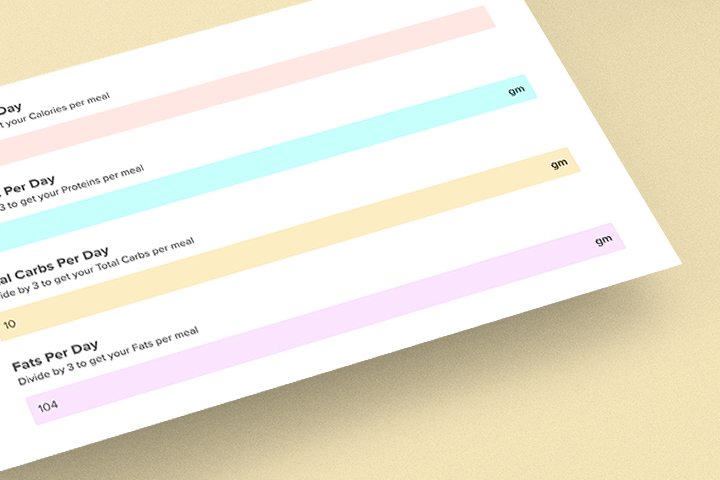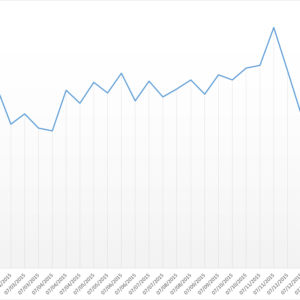It’s no secret that keto diets are great for weight loss and improving a long list of health issues. But what about keto and mental health? Is this very low-carb, high-fat way of eating as good for the mind as it is for the body?
The emerging field called “metabolic psychiatry” says yes: keto can help those with mental health issues like depression. Research in this area is in its early days, but findings so far are encouraging, especially considering how many people live with mental health issues.
Blood Sugar and Ketones

No one knows for certain why keto diets help support mood stability and a better mental outlook, but there are lots of possibilities. Any one of these or a combination of them might be at work in a particular individual, and the reasons why keto helps one person might be different from why it helps someone else.
The most obvious reason for keto supporting mental health is that the diet gets people off the blood sugar rollercoaster. When you follow a very low-carb diet, blood sugar stays fairly stable throughout the day, instead of each meal or snack leading to wild swings between highs and lows.
Some of the symptoms of hypoglycemia (low blood sugar) are strikingly similar to what people experience when they feel anxiety or panic attacks: rage, irritability, and general mood swings.
A second reason could be that ketones provide fuel for the brain. Some mental health conditions—depression, in particular—are associated with lower than normal glucose metabolism in the brain. It’s been known for a long time that glucose isn’t the only energy source the brain can use.
The brain uses ketones very effectively, so it’s possible that on a keto diet, the brain gets a supply of premium fuel it doesn’t have when someone eats more carbohydrates.
Neurotransmitters and Electrolytes

There are several other aspects of ketogenic diets that might explain their beneficial effects for mental health. Some of these have to do with biochemical changes in the brain, and they may be the same as some of the mechanisms by which keto is effective for preventing or reducing seizures in those with epilepsy.
First, keto diets may increase production of gamma-aminobutyric acid (GABA), the body’s most calming neurotransmitter, while at the same time reducing production of glutamate, an “excitatory” neurotransmitter. (Excess glutamate signaling is believed to cause over-stimulation of neurons, which could contribute to mental health disturbances.)
Animal studies indicate that keto diets also increase norepinephrine, which may have mood-boosting effects.
Second, keto might help to stabilize electrolyte balances that affect neuronal function in the brain. Sodium, potassium, and calcium have to be in the proper balance for neurons to function properly. Abnormalities in this balance can contribute to seizures, migraines, and possibly mood disorders.
In plain English: by helping to maintain the proper electrolyte balance, keto might make it so that neurons fire when they’re supposed to and don’t fire when they’re not supposed to. This might have a positive effect on mood and cognition.
Beyond those, there are several other mechanisms that might explain why keto diets can be beneficial for mental health, including anti-inflammatory effects and reduced oxidative stress.
Research on Keto for Mental Health

A paper in the journal Frontiers in Psychiatry recently generated a lot of buzz because it showed that a keto diet was effective for improving schizophrenia, major depression, and bipolar disorder.
Overall, subjects had improvements in markers of metabolic health, such as fasting glucose, HbA1c, blood pressure, and triglycerides, and 64% of subjects who adhered to the diet were able to reduce their medication.
This is very different from the usual outcomes from standard treatments, in which patients typically require additional medications or higher doses. The authors wrote that the ketogenic diet contributed to “unprecedented mental health improvements…”
Earlier research documented the case of a woman who adopted a keto diet for weight loss, and within less than a month experienced the unexpected effect of lifelong schizophrenia and hallucinations disappearing.
More recent research documents additional cases of schizophrenia being put into remission with a ketogenic diet, allowing these patients to stop all psychiatric medications.
Keto is also known to help with depression, but there are more patient anecdotes than published research so far.
One study showed small but still notable improvements in depressive symptoms in patients following a ketogenic diet. Interestingly, while most patients lost weight, had improvements in HbA1c, and were able to reduce insulin doses and use of other diabetes medicines, the only factor that predicted improvement in depressive symptoms was the percentage of reported blood ketone levels (beta-hydroxybutyrate) above 0.5 mmol/L.
This is another example of the possibility that ketones are providing the brain with a fuel that may have beneficial effects not conferred by glucose.
Can Keto Make Mental Health Worse?

Since the ketogenic diet was originally developed as a non-drug treatment for epilepsy, we know it has unique effects on the brain and central nervous system. Ketones are a great fuel for the brain, and keto diets (as well as exogenous ketones) are even being studied as therapies for Alzheimer’s disease.
Considering everything keto diets are good for, it might be hard to believe keto could make people feel worse. This does happen from time to time, but there’s usually a simple explanation for why—and an easy way to fix it.
For example, if you start to feel tired and sluggish on keto, you most likely just need more salt (sodium), or possibly some extra magnesium. If you’re taking medication for blood sugar or blood pressure (i.e. for diabetes or hypertension), these might need to be adjusted.
Or it’s possible you need more calories or maybe even more carbs than you’ve been getting. (Check out this past article for what to do if keto has you dragging and feeling tired.)
Where to Find More Information

Want to learn more about how keto can be beneficial for mental health? A growing number of psychiatrists are spreading the word about this dietary therapy after studying it and seeing it help their patients.
Look for the upcoming book Brain Energy by Dr. Christopher Palmer, a psychiatrist at Harvard University (due to be released November 2022).
Here are some other resources to dig into the details:
- Ketogenic Diets for Mental Health: A Guide to Resources (Georgia Ede, MD)
- 8 Reasons to Try Low-Carb for Mental Health (Georgia Ede, MD)
- Nutritional and Metabolic Strategies for Optimizing Mental Health (Georgia Ede, MD)
- Meat & Mental Health (Ken Berry, MD and Georgia Ede, MD)
- Ketogenic Diets and Mental Health (Bret Scher, MD and Christopher Palmer, MD)
- The Keto Diet’s Potential to Treat Mental Illness (Christopher Palmer, MD)
- Nutrition and Mental Health (Bret Scher, MD and Ignacio Cuaranta, MD)
A Word of Caution

If you are taking psychiatric medications and want to try a keto diet, it’s critical that you be supervised by your doctor or other qualified medical professional. The metabolic changes that happen on keto are powerful and often take place quickly.
This means your medications might need to be adjusted shortly after starting the diet. Work with your doctor to be sure that you do things safely.
Want to make keto easy?
If you’re sick of the meal prep from the keto diet, then check out an alternative that only takes a minute or two to make: Keto Chow. Keto Chow is a meal replacement shake that has 1/3 of your daily nutrients. This means you’re getting 1/3 of all the necessary vitamins, protein, fiber and minerals you need with every serving.
Choose from over 30 flavors, including soup bases!



























